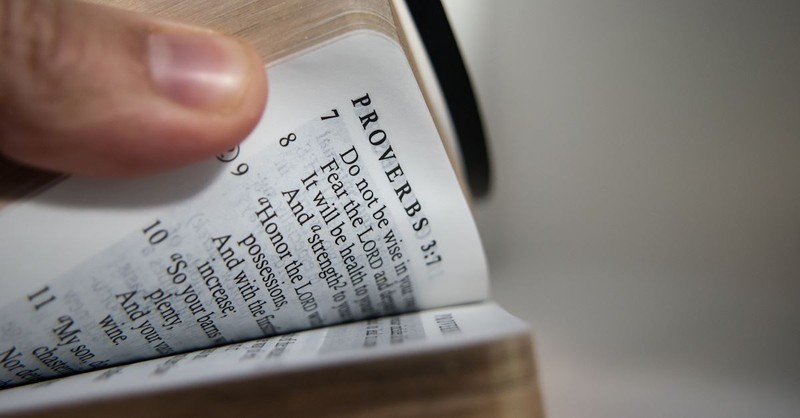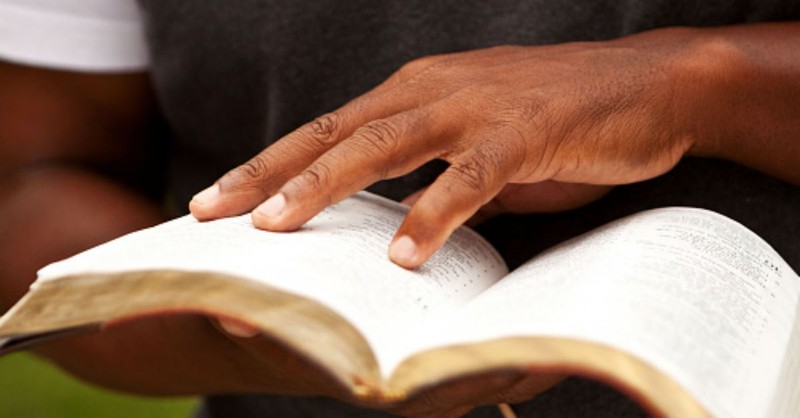
If you’ve been in church or another Christian environment for a while, you’ve likely heard of her – the Proverbs 31 woman. She’s essentially the Christian Barbie. And she starts off harmless enough as a role model for young girls. Who wouldn’t want to be like her?
She’s godly. She’s an accomplished homemaker and businesswoman. She’s super creative and would probably be ALL about Pinterest if she had the chance. Her family and community adore and respect her. She’s deeply impressive and inspiring. But somewhere down the road, the Proverbs 31 woman isn’t inspiring anymore. Instead, the Bible passage just remind us of what we are not, yet should be.
I’ve been fortunate enough to have attended church and been enrolled in Christian school for most of my life. I’ll confess here on the internet an attitude that my friends and I have harbored towards this uplifted Bible heroine – we hated her.
She made all of us look bad because we were modern girls who liked to sleep in a little and don’t know anything about making quilts or any other type of bed coverings. That’s what Target is for.
Since those days of trying to reckon with yet another unattainable female ideal, I’ve learned new ways of reading this popular passage – all thanks to our patient and gracious God who invites his children into his presence to ask, seek, and knock – even with angsty questions. Now, I no longer idealize or ignore the Proverbs 31 woman.
Here’s 5 things to help you read Proverbs 31 without panicking or doubting yourself -
Photo Credit: Thinkstock/Deagreez

Proverbs 31 is Not a Perfect-Woman Checklist
I was shocked to realize that Proverbs 31:10-31 wasn’t mainly written to women as a checklist of how to be perfect. Rather, it was written by a man called Lemuel (who may or may not be King Solomon – it doesn’t really matter), sharing the advice his mother gave him about what kind of woman he should seek to marry.
According David Guizik’s online Bible commentary, Enduring Word: “It is primarily a search-list for a man, and only secondarily a check-list for a woman…This passage reminds the Christian man that he must walk in the fear and wisdom of God so that he will be worthy of and compatible with such a virtuous woman.”
So it’s not really written as a checklist for young women to attain to; rather it’s a list of things a husband should appreciate about his wife.
Photo Credit: Thinkstock/simonapilolla

Meaning of Her Being Virtuous Woman
“A wife of noble character who can find?” (Proverbs 31:10a)
Depending on what translation you read, you’ll find the Proverbs 31 woman described as “virtuous,” “of noble character,” or “excellent.”
But Theology of Work explains, “these terms fail to capture the element of strength or might present in the underlying Hebrew word (chayil). When applied to a man, this same term is translated “strength,” as in Proverbs 31:3. ... Translators tend to downplay the element of strength when the word is applied to a woman … But the word is the same, whether applied to men or women. In describing the woman of Proverbs 31:10-31, its meaning is best understood as strong or valiant...”
Photo Credit: Thinkstock/M-imagephotography

The Proverbs 31 Woman Isn’t Necessarily a Wife
Theology of Work also talks about the word “ishshah,” which is the Hebrew word in Proverbs 31:10 that is usually translated as either “woman” or “wife.” They said translations such as ESV and NIV that chose to use “wife” probably did so because of the obvious relationship with a husband and children in the rest of the passage, but other translations like KJV use “woman.” Both are accurate translations of “ishshah.”
With this in mind, Rachel Held Evens encouraged all Christian women, married or not, to honor Proverbs 31 by being women of valor.
“If you are a stay-at-home mom, be a stay-at-home mom of valor,” Evens wrote on her blog. “If you are a nurse, be a nurse of valor. If you are a CEO, a pastor, or a barista at Starbucks, if you are rich or poor, single or married—do it all with valor.”
Photo Credit: Unsplash/Javier Molina

Proverbs 31:11-31 is a Song to Honor Women
It’s traditional for Jewish men to sing this passage to the women in their family during each Sabbath as a way to honor them.
According to The Jewish Chronicle, “There is a widespread custom of singing Eshet Chayil [woman of valor] on Friday nights at home before kiddush, as a song of praise to the woman of the house.”
Listen to the song in Hebrew with English subtitles on YouTube.
It’s not only a song; the Proverbs 31 passage is an acrostic poem using the Hebrew alphabet. Neat right?
Photo Credit: Unsplash

Proverbs 31 is a Call for Social Justice for Women
Historically, women were not usually rewarded or even given credit for their hard work and good ideas. Men also, unfortunately, experience this injustice, but the passage in Proverbs calls specifically to step out of the way between a woman and the benefits of her work, and even that she should be praised in public.
I like how the ESV puts it:“Give her of the fruit of her hands, and let her works praise her in the gates.” (Proverbs 31:31)
John Wesley’s Explanatory Notes explains it like this: “It is but just, that she should enjoy those praises which her labours deserve. Let her works - If men be silent, the lasting effects of her prudence and diligence will trumpet forth her praises. In the gates - In the most publick and solemn assemblies.”
Photo Credit: Thinkstock

Read Proverbs 31:11-31 for Yourself:
“A wife of noble character who can find? She is worth far more than rubies. Her husband has full confidence in her and lacks nothing of value. She brings him good, not harm, all the days of her life. She selects wool and flax and works with eager hands. She is like the merchant ships, bringing her food from afar. She gets up while it is still night; she provides food for her family and portions for her female servants. She considers a field and buys it; out of her earnings she plants a vineyard. She sets about her work vigorously; her arms are strong for her tasks. She sees that her trading is profitable, and her lamp does not go out at night. In her hand she holds the distaff and grasps the spindle with her fingers. She opens her arms to the poor and extends her hands to the needy.
Photo Credit: Thinkstock

“…a woman who fears the LORD is to be praised.”
"When it snows, she has no fear for her household; for all of them are clothed in scarlet. She makes coverings for her bed; she is clothed in fine linen and purple. Her husband is respected at the city gate, where he takes his seat among the elders of the land. She makes linen garments and sells them, and supplies the merchants with sashes. She is clothed with strength and dignity; she can laugh at the days to come. She speaks with wisdom, and faithful instruction is on her tongue. She watches over the affairs of her household and does not eat the bread of idleness. Her children arise and call her blessed; her husband also, and he praises her: Many women do noble things, but you surpass them all. Charm is deceptive, and beauty is fleeting; but a woman who fears the LORD is to be praised. Honor her for all that her hands have done, and let her works bring her praise at the city gate.” (Proverbs 31:10-31)
Photo Credit: Thinkstock/digitalskillet

Bible Passages Will Always Have Varying Interpretations
The Holy Bible is a rich compilation of stories, prophecies, and poems that confuse all of us at some point in life, if we choose to read it. Because it’s God’s word, so graciously given to us, we faithfully return to it even though it’s hard sometimes.
As you pursue God by reading His Word and come across speed bumps or full-on road blocks, don’t be afraid. Take your confusion and concerns to God. You might not get a clear answer to your questions right away, but trust that He hears you and the Holy Spirit is faithfully working in you.
To help:
- Before reading Scripture, pray that the Holy Spirit will help guide you.
- Read the Bible in community with other believers. We can often benefit from another’s understand of Scripture.
- Explore the Bible’s wonderful complexities using commentaries, dictionaries, and other resources.
Emily Hall is an editor for Salem Web Network website such as iBelieve.com and Crosswalk.com.
Photo Credit: Thinkstock/STUDIOGRANDOUEST
Originally published Thursday, 10 January 2019.









